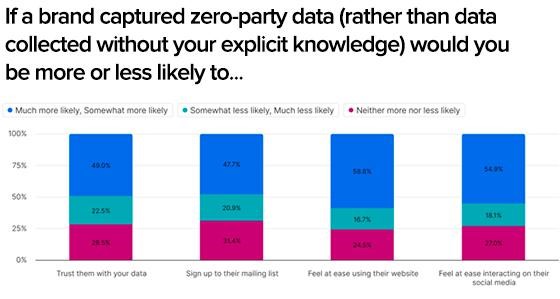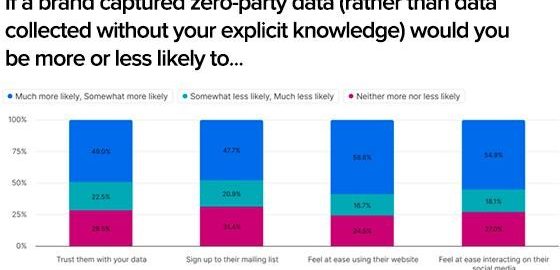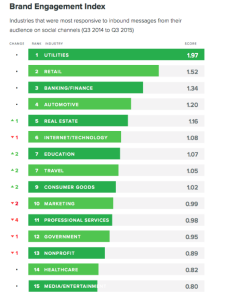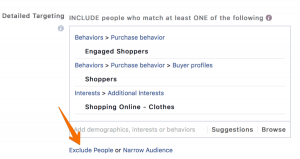Sharing Personal Data Becomes Easier When Consumers Don’t Feel Prodded Or Pushed

Nearly one-third of consumers would decline non-essential website cookies if asked, and 58% would opt out of mailing lists regularly, but 47% said they will share data with a business on their own terms, according to data released Thursday.
Of those participating in the survey conducted by consumer research company Attest, 87% of consumers between the ages of 55 and 64 worry most about data privacy. Some 82% of consumers between the ages of 18 and 24 said they are uneasy how brands gather their information online.
Overall, 84% of Americans participating in the survey are concerned about data privacy when interacting with brands online, including 41% who are “very concerned.”
“Consumers are looking for greater transparency from brands,” says Jeremy King, CEO and founder of Attest, a consumer research platform. “Surveillance methods of data collection are a real turnoff. Consumers want to share their data explicitly or not at all.”
He said if a brand can communicate that it won’t use cookies to collect data, and it won’t share user data with anyone else, it really helps to build trust. Likewise, he said, if a consumer willingly and knowingly provides their data by answering a survey, for example, it creates a feeling of trust.
Brands need to rethink how they are collecting first-party data. “To give a real-world example, if you ask someone about their preferred drink and they answer ‘coffee,’ it won’t feel creepy when you later offer them a cup of coffee,” King said.
The survey of 1,500 working-age U.S. consumers was conducted on the Attest platform during December 2023.
The findings show consumers are sharing less data than they have in the past unless they are able to offer it to the brand without being prodded or pushed.
Some 85% of consumers opt-out of being added to a company’s mailing list at least some of the time, while 58% say they do it either “always” or “most of the time.”
The data also shows nearly one-third of consumers would, if asked, reject non-essential website cookies.
Consumers who decline cookies are most likely to do so because they don’t want to be targeted with advertising and because they don’t trust the website with their data. About 27% have concerns about hackers stealing their data.
Some 52% of Gen Z consumers said they do not trust websites regarding their data privacy.
The type of brand and market sector can have an impact on a consumer willingness to share data via first-party cookies. Consumers, 47%, are more likely to opt out of cookies on social media websites, potentially due to perceptions of high levels of advertising on these platforms and a history of poor data privacy protections.
Some 42% of consumers participating in the survey said they are like to opt-out of travel websites, followed by 40% of food and beverage websites, and 39% for each across financial and retail websites.
(7)
Report Post





